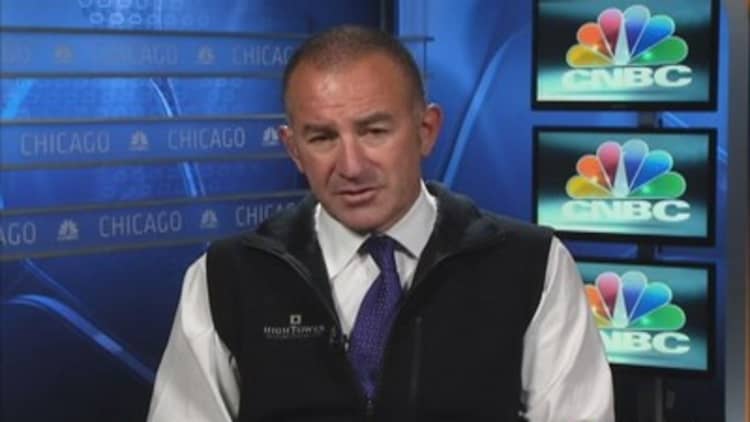
Millennials, the children of baby boomers, have graduated college with tens of thousands of dollars in student loan debt.
They have entered a job market that is the tightest we have seen since the Great Depression. They have lived through the bursting of the tech bubble, the crash of the housing market, the downgrading of America's credit and the surreal dysfunction in Washington that has thrown global markets into turmoil.
They have seen the executives of major banks continue to receive eight-figure salaries and bonuses even as they are pilloried before Congress for causing a worldwide financial crisis.
It should come as no surprise that millennials, also known as Generation Y, have some trust issues. In fact, they may make up the first American generation that doesn't assume things are going to be better for them than they were for previous generations. They have a more realistic worldview, uncolored by the naive idealism that shaped their parents' perceptions at the same age.
(Read more: Millennials make most of massive inheritance)
Millennials started saving after watching what happened to their parents' retirement portfolios in 2008. Studies show that they began saving and continue to save more often than their any generation before them.
As their financial resources grow, the millennials will come to wield enormous influence in the financial services market.
But they will not be sold a bill of goods.
Though they tend to be more liberal on questions like same-sex marriage and immigration, they are highly conservative about money and wary of investments they perceive as risky.
They are equally wary of financial advice from the mainstream media and traditional "experts." They might be willing to listen to your pitch, particularly if you make it in an amusing and intelligent YouTube video, but don't expect them to take it at face value.
(Read more: Millennials looking like the next 'greatest' generation)
Millennials are more likely to form opinions based on what they hear from friends, social networks and their own research. And that information stream is a two-way street.
According to one survey, 86 percent of millennials are willing to share information online about their brand preferences, making it a top personal identifier. In essence, what they buy is who they are.
Millennials also like to self-educate. They want tutorials and an interactive website with links, videos and smartphone-capability. They'll consider all the information in making their determination.
But this generation is also smart enough to know what they don't know.
(Read more: The money mind-set of Gen Z)
For example, they will be actively involved in making their financial decisions but will understand there's a place for a financial advisor—the right one, that is. And very likely not the same one their parents turned to.
Millennials will demand advisors who incorporate cutting edge technology into their practice and, equally important, who represent their values: collaboration, transparency, innovation, engagement and access.
(Read more: How to recruit fussy Millennial employees)
They will seek someone willing to present options, articulate rationale and provide genuinely individual attention. They will do their own research to confirm the validity and wisdom of what their financial advisor says.
Millennial investors will expect immediate access to their account information. They will expect their advisor to be easily accessible via email and social media. The face-to-face quarterly meeting will become a thing of the past, replaced with frequent and substantive electronic communications.
(Read more: The me, me, me generation)
Millennials will seek unbiased advice from a professional who puts the client's interests first—not a sales pitch from someone looking to score a big commission. It will not be difficult for them to tell the two apart.
Investors in this generation expect straight talk. They want to do business with people and firms that treat them fairly and with respect. They know they are responsible for securing their own financial future, but they will deeply appreciate help in getting there.
Elliot S. Weissbluth, is CEO of HighTower, a Chicago-based advisor-owned financial services company serving high-net worth and institutional clients.




